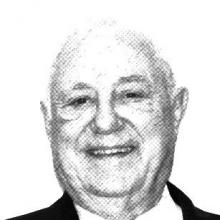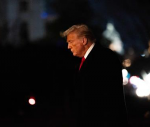You are here
A touch of humanity
Jun 24,2014 - Last updated at Jun 24,2014
I felt a certain sense of pride, but also of sadness, as I read The Jordan Times editorial of June 19, 2014, particularly when it stated that “it is unfortunate and regrettable that young people should disappear into thin air, … and if, as believed by many, they were taken hostage, one can only condemn the move. No child, Israeli, Palestinian or from any other country, should be used as a pawn for any purpose…”
That an Arab newspaper that is very aware of the terrible mistreatment meted out to the Palestinians and their children over the past seven decades, since the establishment of Israel, can so humanely come out condemning the use of children as pawns in armed struggles is a credit to its editors and to our magnificent Arab, Muslim civilisation.
These are brutal times, but we, Arabs, have not known a moment of peace since the landing of Napoleon’s troops in Egypt, on July l, l798.
What is going on in our region now has nothing to do with Arabism or Islam, in history or now; it is but the reaction of a bewildered and confused nation in a time of transition between two ages to the advance and machinations of an aggressive and technologically superior neighbour, the West.
In November l947, King Abdullah wrote an essay, “As the Arabs see the Jews”, for the American Magazine of the United States that, until today, I regard as one of the most articulate and honest explanations of the Palestine problem, once called “the intractable Arab-Israeli conflict” and now, and because of Arab impotence, simply referred to as “the Israeli-Palestinian conflict”.
In the essay, King Abdullah disputed the mistaken view that Arab opposition to Zionism (and later the state of Israel) was because of longstanding religious or ethnic hatred. He noted that Jews and Muslims enjoyed a long history of peaceful coexistence in the Middle East, and that Jews have historically suffered at the hands of Christian Europe.
Pointing to the tragedy of the holocaust that the Jews suffered during World War II, the monarch asks why America and Europe refused to accept more than a token handful of Jewish immigrants and refugees. It was unfair, he argued, to make Palestine, totally innocent of anti-Semitism, pay for the crimes of Europe.
King Abdullah also asked how Jews could claim a historic right to Palestine when Arabs had been the overwhelming majority there for nearly 1,300 uninterrupted years.
The essay ended on an ominous note, warning of dire consequences if a peaceful solution could not be found to protect the rights of the indigenous Arabs of Palestine.
The King stated that the Arabs objected to Jewish immigration into Palestine, “not because they are Jews, but because they are foreigners…. The European Jews are Western in culture and outlook. We utterly deny its (The Balfour Declaration’s) validity. President Woodrow Wilson approved it before it was issued and the American Congress adopted it word for word in a joint resolution on June 30, l922.
“We utterly deny the right of Great Britain to give away Arab land for a ‘national home’ for an entirely foreign people....
“The persecution of the Jews has been confined almost entirely to the Christian nations of the West… Jews have lived for many centuries in the Middle East, in complete peace and harmony with their Arab neighbours. We have no problem with the Jews, either on the religious or the social level, but rather simply object to the solution of a Western problem, the Jewish problem, solely at Arab expense.”
Jews have always been part of the millet, (community) mosaic of the Middle East, living alongside other religious and ethnic communities, which was one of the most beautiful characteristics of the diversity of the Arab Islamic civilisation. This mosaic included Muslims (Sunni, Shiite, Ja’fari, Ismaili, Alawi, Ibadi, Zaidi, Druze, Bahai), Christians (Orthodox, Catholic, Protestant), Jews, Arabs, Turks, Kurds, Turkmen, Iranians, Afghans, Armenians, Chaldeans, Assyrians, Circassians, Chechens and many other smaller and colourful pieces of the mosaic of the society.
And until the collapse of the Ottoman empire that mosaic coexisted, until the equation was disrupted, especially in the Fertile Crescent, by Western influence and its creation: the modern Arab state through the Sykes-Picot Agreement and the creation of Israel, through the Balfour Declaration.
People now, especially here in the Arab world, forget that what allowed for such diversity was the fact that its roots are in the Holy Koran itself. The existence of such diversity was not a gift or largesse on the part of one or another particular ruler, but a direct order from God when He declared His creation of humankind as nations, tribes and different peoples so that “they may know one another”.
Simply stated, Jews were part and parcel of the socio-political landscape, their conditions were similar to those of other ethno-religious communities.
Many Arabs believe that their terrible conditions today can be traced back to the apparent and hidden fingers of Zionism that, with Western assistance, have been behind the political chaos, violence and bloodshed.
Whether such an accusation is true or not, the time has come for the West and its Zionised policies to work towards ending this historic confrontation, especially as the danger of a nuclear holocaust increases in proportion to the speed of the globalised, of the “villagised”, world in which we all live.
A fresh positive strategy for the entire region should be immediately devised to literally turn “swords into plow shares”, seeking partners in the building of a new, humane and civilised world order, and building a relationship between genuine partners for the future, not creating clients to be manipulated.
The citadel mentality of the crusaders, hiding behind high walls, constantly worried about their security should be replaced by a future where the Middle East, which once produced some of the greatest ideas in the history of man — Judaism, Christianity and Islam — can once again become a beacon and a light for humanity
Reading the humane editorial written at a time when the Israeli army and security forces are, on a daily basis, so ruthlessly abusing the Palestinians gave me hope that there is still some humanity, some hope for the future, especially if we can reinject a sense of humanism and revive the noble principles that once characterised Western society.
The writer was director of the Royal Institute for Interfaith Studies and former foreign minister of Jordan. He contributed this article to The Jordan Times.












